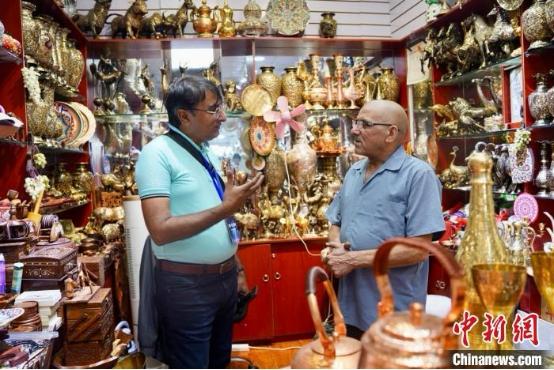Pakistani artisanship, technology highlighted in Urumqi’s Int’l Grand Bazaar highlighting cultural cooperation between two countries.
Pakistani handicrafts and advanced Chinese technology fascinated Pakistani delegates during their visit to the International Grand Bazaar in Urumqi, Xinjiang. Arbab Ali Asghar, a senior reporter at PTV, expressed surprise at seeing handicrafts from his hometown, including brass lamps and copper vases, in a store operated by Ahtar Hussain, a Pakistani businessman living in Xinjiang for over 30 years. Hussain’s store serves as a cultural link between Pakistan and China, and he now uses live streaming to sell Pakistani products globally.
The historical trade relationship between China and Pakistan, dating back to the Silk Road era, continues to prosper. The Grand Bazaar, with its 3,000 shops and 200,000 daily visitors, impressed Maarij Farooq, Deputy Editor-in-Chief of Daily Ittehad, with its high-quality goods. He expressed hope that Pakistan would soon manufacture similar products through enhanced trade ties with China.
During their visit to the Xinjiang Software Park, Pakistani delegates explored advanced technologies, including the BeiDou Satellite Navigation System (BDS) for livestock farming, which enables herders to monitor livestock remotely. They also tested various tech devices, such as smart translators and satellite messengers, with Farooq expressing surprise at the presence of such high-tech innovations in Xinjiang.
As the China-Pakistan Economic Corridor (CPEC) approaches its tenth anniversary, cooperation between the two nations is expanding in industrial and technological sectors. Yasir Habib Khan, Founder of the Institute of International Relations and Media Research, foresees more Pakistani companies setting up operations in Xinjiang. Xu Xiang, a senior engineer in Urumqi, emphasized the goal of expanding Xinjiang’s software and information services to Central and South Asia, building on the region’s traditional trade ties.
Related Posts

















